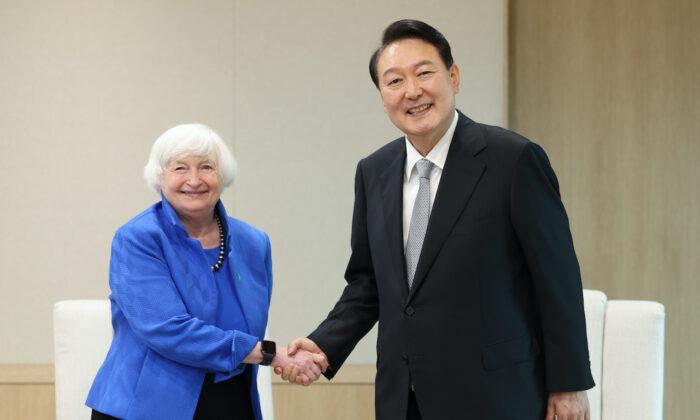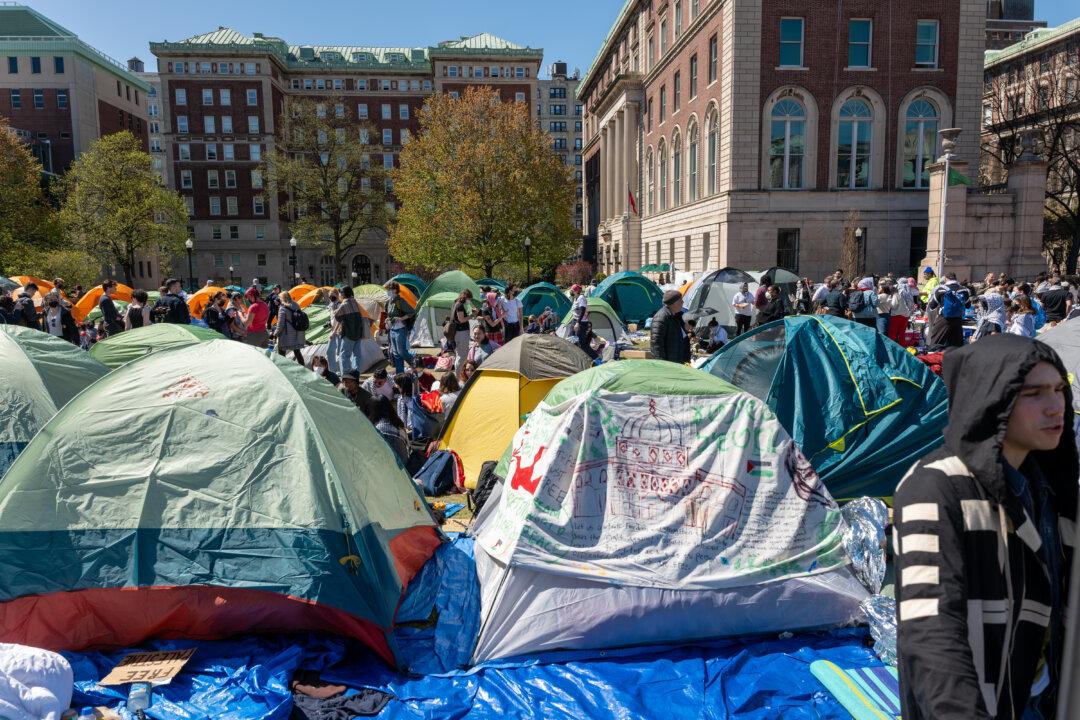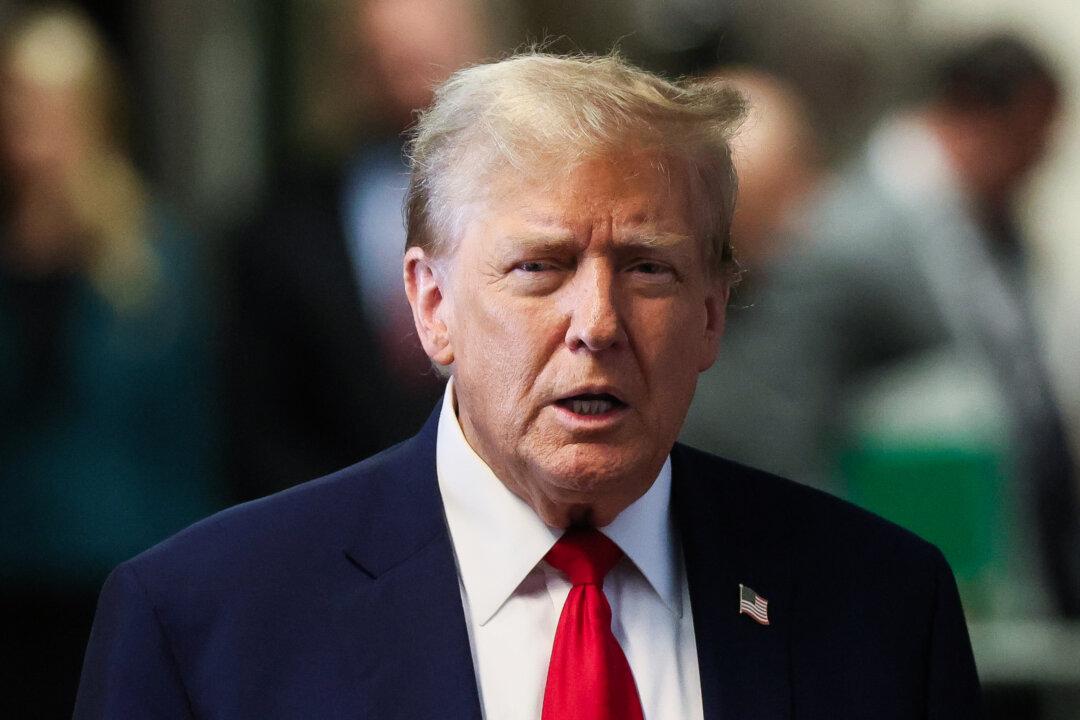The United States and South Korea have agreed to expand cooperation in stabilizing the foreign exchange market and capping the price of Russian oil to alleviate rising global inflation.
U.S. Treasury Secretary Janet Yellen met with South Korean Finance Minister Choo Kyung-ho in Seoul, South Korea, on July 19 to discuss economic security and measures for strengthening supply chains.
The ministry’s statement made no mention of whether the United States and South Korea are in agreement about a currency swap line, which ended in December 2021.
South Korea’s consumer price index climbed by 6 percent in June, the highest since 1998, while its currency rate plunged by more than 9 percent against the U.S. dollar this year.
https://twitter.com/SecYellen/status/1549455230852530176
Yellen met with South Korean President Yoon Suk-yeol ahead of her meeting with Choo, in which Yoon called for an in-depth discussion with Washington on cooperation to stabilize the foreign exchange market.
Price Cap on Russian Oil
During their meeting, Choo expressed that South Korea would be willing to support Washington’s plan to impose a price cap on Russian oil, but that the price cap must be imposed in such a way that it stabilizes consumer prices.The countries haven’t yet established a price ceiling for Russian oil. But Yellen said the price cap on Russian oil would deprive Russia of oil revenues while also lowering oil prices for consumers.
“At the same time, the United States and [the] Republic of Korea continue to work in lockstep to limit North Korea’s continued development and proliferation of its nuclear and missile programs.”
Yellen told reporters on July 16 that she had held productive bilateral meetings about the proposed price cap with more than six counterparts on the sidelines of a meeting of Group of 20 finance officials on the Indonesian island of Bali.






Friends Read Free